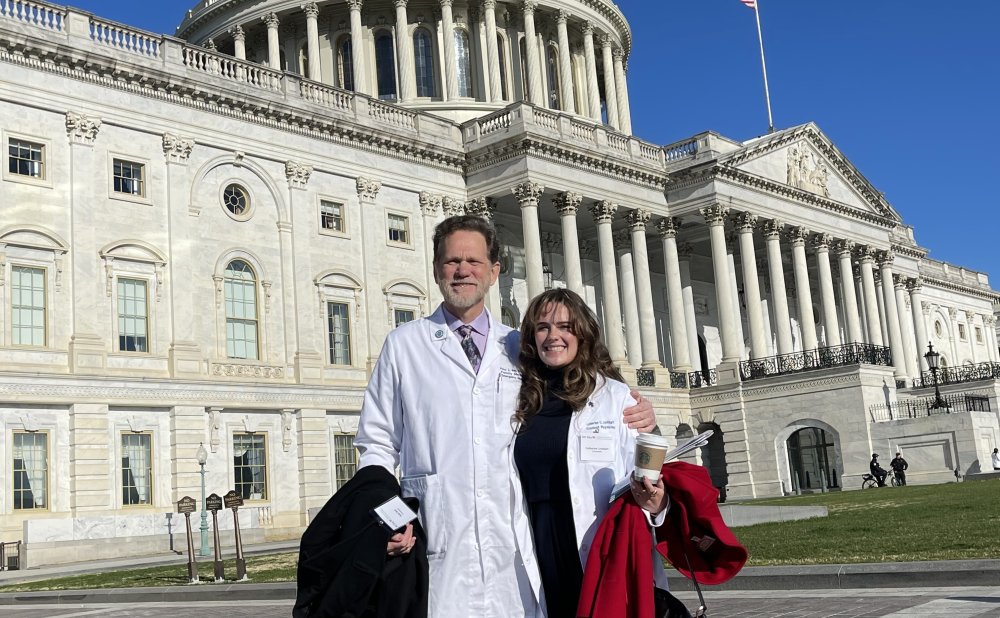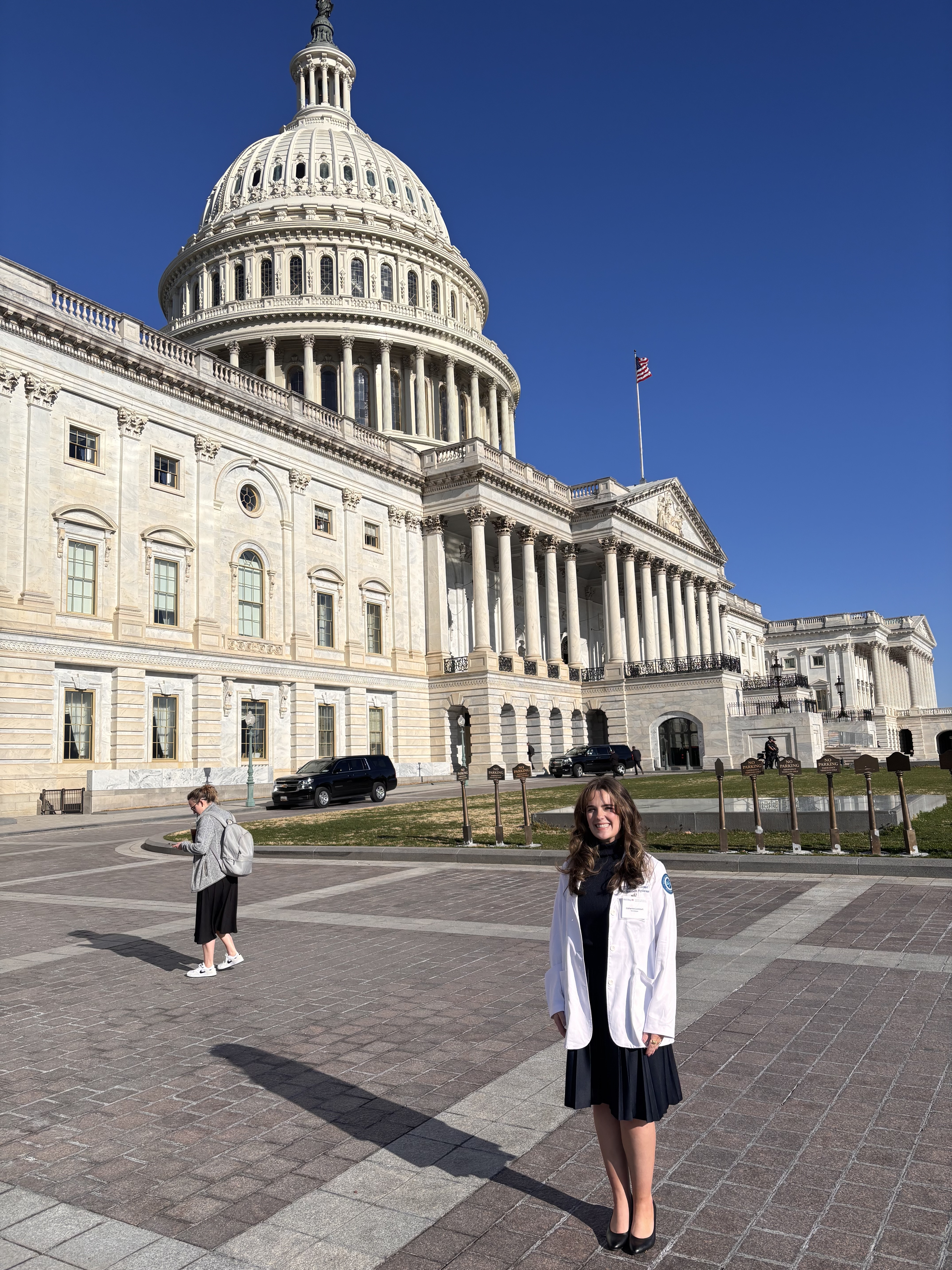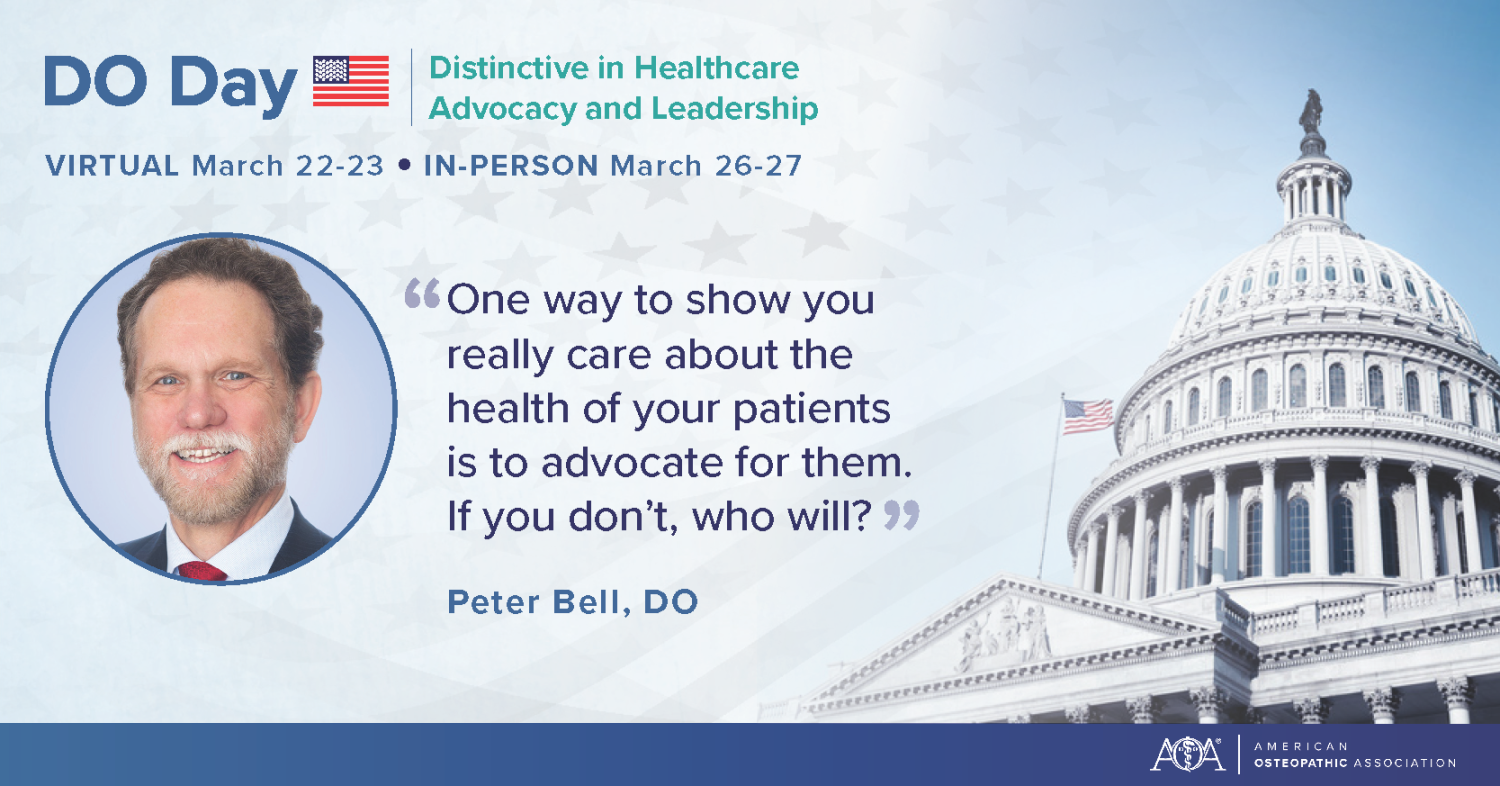BUCOM Student and Dean Take on Capitol Hill to Impact the Future of Medicine

First-year Osteopathic Medical Student, Catherine (Catie) Lockhart, recently had the opportunity to travel to Washington, D.C. on March 26–27 to participate in DO Day on the Hill, hosted by the American Osteopathic Association (AOA).
DO Day provides osteopathic medical students the chance to directly engage with lawmakers and advocate for policies that shape the future of health care, the osteopathic profession, and the communities they serve.
Catie was joined by Dr. Peter Bell, Dean of the Baptist University College of Osteopathic Medicine (BUCOM), as they met with lawmakers to discuss high-priority issues impacting patients, physicians, and future DOs.
During their time in Washington, Catie and Dr. Bell engaged in discussions surrounding several key issues:
- Protecting physician practices and Medicare access through the Medicare Patient Access and Practice Stabilization Act (H.R. 879)
- Safeguarding Medicaid and expanding telehealth services, especially for underserved communities
- Securing multi-year funding for the Teaching Health Center Graduate Medical Education (THCGME) program to strengthen the physician pipeline in rural areas
Interview with Catie Lockhart, OMS-I
Q: How would you describe the overall impact DO Day had on you personally and professionally?
“DO Day was such an amazing experience. It was so impactful to meet so many of my peers from across the country to advocate for a common goal. Going into an osteopathic program, we hear so much about the osteopathic mission, but to go into the Capitol Building in a sea of white coats and watch that mission in action was so moving. On a personal level, it gave me a greater sense of purpose as a future physician to care for my patients far beyond the clinic.”
Q: You met with senators and House representatives—what was that experience like?
“While we only met one senator briefly in passing, we had more in-depth meetings with their staffers, which is pretty common. They were incredibly kind and open to hearing what I and other students from Tennessee had to say. Even with all the activity around Capitol Hill, being heard felt so intentional and meaningful. I'd be lying through my teeth to say I wasn't nervous, but by the end of the day, it was down to routine explaining who we were and why what we brought was so important. It was a great experience speaking with them.”
Q: Can you explain a bit more about the specific policies you advocated for?
“We advocated for the Medicare Patient Access and Practice Stabilization Act to protect physician payments, which helps keep practices open and sustainable. We also emphasized the importance of maintaining Medicaid funding and access to telehealth services, which are lifelines for rural and underserved areas. Lastly, we pushed for continued funding of the THCGME program, which supports the training of primary care physicians in communities that need them the most.”
Q: Why do you feel those issues are especially important to advocate for as a future DO?
“I feel advocating for these issues as a future DO not only helps protect my future patients, but help protect opportunities for myself, peers, and other future physicians behind me.”
Q: How did it feel to attend DO Day alongside Dr. Bell?
“Attending with Dr. Bell made such a difference. His previous experience guaranteed us lunch between meetings, navigated all the buildings (literally—those buildings are a maze!), and most importantly gave a perfect example of standing tall for what's important while still making others feel seen. And it certainly doesn't hurt he has a story or a joke in his back pocket for any situation! Being able to have my first experience with his guidance took a lot of the nerves out of it and added a lot of fun. He even let me pick the first museum we visited afterward, which added a fun touch to the trip!”
Q: You gave a shoutout to other students during your Instagram takeover—what was it like connecting with peers from other schools?
“I really enjoyed having the chance to meet students from other COMs and hear about how similar and different their experiences have been. Most of the students I met were ahead in their programs, so hearing about their journeys gave me a glimpse into what’s ahead. Everyone was incredibly encouraging and welcoming It was really nice to see how many wonderful people seem to gravitate toward being a DO.”
Q: You ended your takeover by saying, “be the change you want to see.” What advice would you give to fellow students who want to get involved in advocacy but aren’t sure where to start?
“I'd want them to know that it's far less scary than it may seem. Start small—a letter, a phone call, or even reading up on an issue. Eventually, you’ll feel more confident to meet with representatives in person, which really makes an impact. It’s not as intimidating as it seems. The most important part is just continuing to show up and speak up.”
Catie’s experience is a testament to the power of student advocacy and the vital role future physicians play in shaping health care policy. Representing BUCOM alongside Dr. Bell, she brought a thoughtful, passionate voice to Capitol Hill—one that reflects the mission of osteopathic medicine and the heart of a true Blue Healer.

First-year Osteopathic Medical Student, Catherine (Catie) Lockhart, recently had the opportunity to travel to Washington, D.C. on March 26–27 to participate in DO Day on the Hill, hosted by the American Osteopathic Association (AOA).





